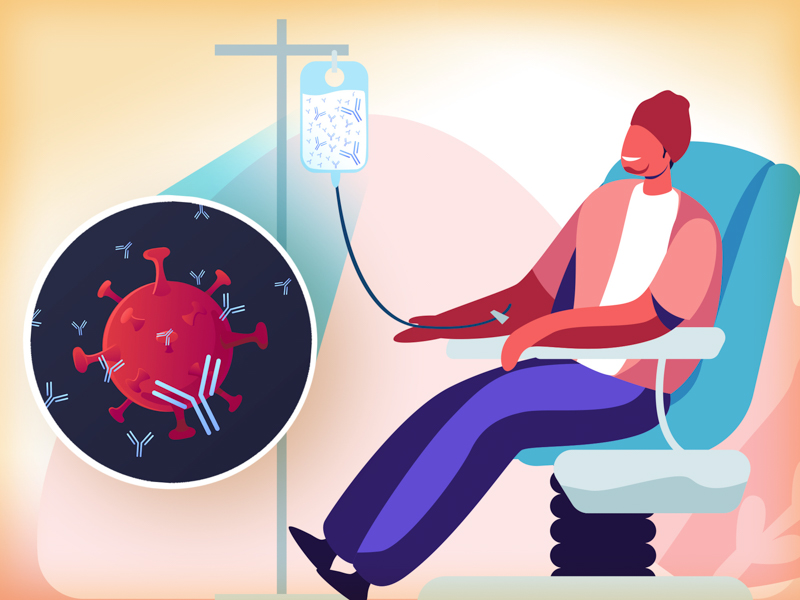
**Novel Antibody Merges Three Cancer-Combatting Capabilities: A Breakthrough in Precision Medicine**
*Journal: [Nature Communications, November 11, 2024, DOI: 10.1038/s41467-024-53839-5](https://doi.org/10.1038/s41467-024-53839-5) | Reading time: 4 minutes*
—
### A Triple Assault on Cancer
Contemporary cancer treatments usually encompass a mix of interventions such as surgery, chemotherapy, radiation, and immunotherapy. Nonetheless, a recent breakthrough has the potential to simplify this approach and provide a highly efficient, tailored substitute for conventional methods. Scientists at Uppsala University and KTH Royal Institute of Technology have introduced a groundbreaking antibody that integrates three essential cancer-fighting capabilities into one. This development marks a considerable advancement in the field of precision medicine.
“After approximately 15 years focused on precision medicine and antibody-based strategies, we’ve now shown that our innovative antibody approach functions effectively as a tailored cancer treatment,” states *Sara Mangsbo*, Professor at Uppsala University’s Department of Pharmacy.
In contrast to other therapies that necessitate multiple drugs or treatments, this antibody operates against cancer from three angles: it targets cancer cells, delivers precisely formulated treatment, and stimulates the patient’s immune response.
### Educating the Immune System to Combat Cancer
A fundamental aspect of this innovative treatment is its capacity to train the immune system to recognize and combat cancer cells with exceptional accuracy. Cancer cells harbor mutations that differentiate them from healthy cells, termed *neoantigens*, which act as unique identifiers. The novel antibody treatment detects these neoantigens and provides tumor-specific materials directly to immune cells, enabling them to identify cancer cells as threats.
Unlike standard chemotherapies that indiscriminately affect both healthy and tumor cells, this technique improves the immune system’s targeted assault. It not only marks the cancer cells for elimination but also amplifies the immune response, leading to a more rapid and vigorous defense mechanism.
Mouse experiments yielded encouraging findings. Researchers noted that the treated mice experienced increased survival rates, and higher doses of the antibody even offered complete protection against cancer. Furthermore, the treatment effectively activated the appropriate types of immune cells in human blood samples, indicating potential success in treating human cancers.
### Accelerated Route to Customized Treatment
Tailored cancer therapy has long promised individualized treatments based on a patient’s unique genetic profile and tumor features. However, standard customized therapies can require extensive time to produce and often come with high costs.
Johan Rockberg, Professor at KTH Royal Institute of Technology, highlighted the new antibody’s ability to tackle these obstacles.
“The strength of our drug lies in its ease of large-scale production, alongside the capability to swiftly adapt it for each patient’s unique disease profile or specific tumor,” remarked Rockberg.
The treatment’s design is divided into two components: a bispecific antibody and a custom *peptide* element. The bispecific antibody, intended to bind simultaneously to cancer cells and immune cells, can be manufactured in bulk ahead of time. In contrast, the peptide component—which ensures the treatment is customized to the individual’s cancer type—can be quickly produced after diagnosis. This modular method allows for the advantages of personalized medicine, while facilitating rapid production and implementation, thus conserving both time and financial resources.
### A Glimpse into the Future of Cancer Therapy
The integration of three essential functions into a singular, precise treatment signifies a transformative change in cancer management. Although significant work remains to adapt these discoveries for human applications, the research has laid the groundwork for a more efficient and effective approach to cancer diagnosis and treatment.
As healthcare systems worldwide increasingly prioritize personalized medicine, innovations like this emphasize the promise of precision treatments to decrease expenses, enhance outcomes, and transform the cancer care journey for patients around the globe.
—
## Glossary
– **Antibody**: A protein produced by the immune system to detect and neutralize foreign invaders, such as bacteria or viruses.
– **Neoantigens**: Distinct mutations found exclusively in cancer cells, differentiating them from normal, healthy cells.
– **Bispecific antibody**: A type of recombinant antibody designed to bind to two different molecular targets simultaneously.
– **Peptide**: A short sequence of amino acids, the basic components of proteins, which can play roles in cell signaling or be part of therapeutic interventions.
—
## Quiz
1. **What three capabilities does the new antibody integrate?**
– *Answer: Targeting cancer cells, delivering treatment, and stimulating the immune response.*
2. **How many years have the researchers invested in studying precision medicine?**
– *Answer: Nearly 15 years.*
3. **What outcomes did the treatment achieve in mouse trials?**
– *Answer: Increased survival and total protection from cancer at elevated doses.*
4. **What are the two primary components of the treatment?**
– *Answer: A bispecific antibody and a tailored peptide component.*
—
*Enjoy this